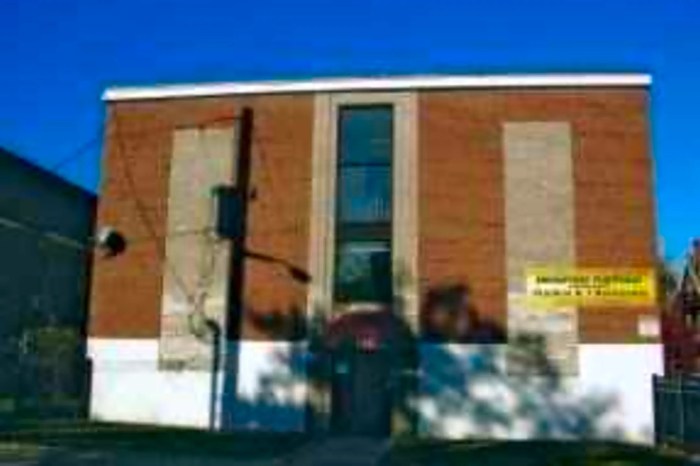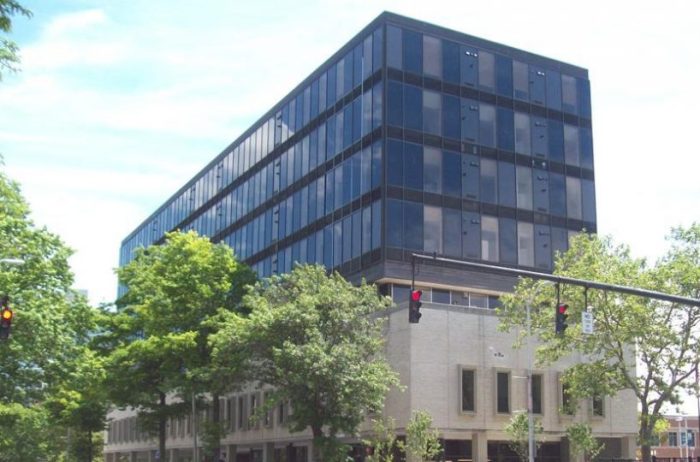Houses for Rent in Bridgeport CT
Bridgeport, CT Rental Market Overview
Houses for rent in bridgeport ct – The Bridgeport, CT rental market is a dynamic environment influenced by factors such as location, property type, and overall economic conditions. Understanding the current market trends is crucial for both prospective renters and landlords. This section provides an overview of average rental prices, lease terms, and supply and demand dynamics.
Average Rental Prices and Lease Terms
Average rental prices in Bridgeport vary significantly depending on the property type and location. One-bedroom apartments typically range from $1,500 to $2,200 per month, while two-bedroom units can cost between $1,800 and $2,800. Larger three-bedroom properties may range from $2,500 to $3,500 or more. Standard lease terms are generally 12 months, although shorter-term leases might be available at a premium.
Negotiating lease terms, especially regarding length and renewal options, is often possible.
Supply and Demand in the Bridgeport Rental Market
Bridgeport’s rental market experiences fluctuations in supply and demand. Periods of high demand, often driven by population growth or economic activity, can lead to increased rental rates and reduced availability. Conversely, periods of lower demand might result in more rental options and potentially lower prices. Keeping abreast of local market trends through online resources and real estate agents is recommended.
Rental Cost Comparison with Neighboring Towns

Source: cloudinary.com
Comparing Bridgeport’s rental costs to neighboring towns provides valuable context. The following table offers a general comparison, noting that actual prices can vary considerably based on property condition, amenities, and location within each town.
| Town | Average 1-Bedroom | Average 2-Bedroom | Average 3-Bedroom |
|---|---|---|---|
| Bridgeport | $1,700 | $2,250 | $3,000 |
| Fairfield | $2,000 | $2,700 | $3,500 |
| Stratford | $1,800 | $2,400 | $3,200 |
| Milford | $1,900 | $2,600 | $3,400 |
Types of Rental Properties Available
Bridgeport offers a diverse range of rental properties to suit various needs and preferences. Understanding the characteristics and amenities of each type is essential for making an informed decision.
Variety of Housing Options
Renters in Bridgeport can choose from apartments, houses, and townhouses. Apartments typically offer less space and maintenance responsibility, while houses provide more space and privacy. Townhouses represent a middle ground, combining some of the benefits of both.
Typical Features and Amenities
The features and amenities available vary greatly depending on the property’s age, location, and price point. However, some common features include:
- In-unit laundry
- Off-street parking
- Updated kitchens and bathrooms
- Central air conditioning
- Pet-friendly policies (often with additional fees)
Pros and Cons of Different Property Types
| Property Type | Pros | Cons |
|---|---|---|
| Apartments | Less maintenance, often more affordable, convenient amenities | Less space, less privacy, potential for noise |
| Houses | More space, privacy, potential for yard/outdoor space | Higher rent, more maintenance responsibility |
| Townhouses | Balance of space and affordability, often include some outdoor space | Shared walls, potential for HOA fees |
Neighborhoods in Bridgeport for Renters
Bridgeport comprises diverse neighborhoods, each with its own character and appeal. Understanding these differences is key to finding a rental property that aligns with your lifestyle and preferences.
Popular Neighborhoods for Renters
Several neighborhoods are particularly popular among renters. These areas often offer a balance of affordability, convenience, and amenities. Specific examples include the Black Rock neighborhood, known for its waterfront views and proximity to parks, and the downtown area, offering easy access to cultural attractions and employment centers. Other areas, such as the East Side and West End, offer a mix of housing options and price points.
Neighborhood Comparison
Comparing neighborhoods requires considering factors like cost of living, commute times, and available amenities. While some areas might offer lower rents, they may involve longer commutes or fewer nearby amenities. Conversely, more central locations might offer greater convenience but come with higher rental costs.
Illustrative Neighborhood Map (Descriptive Text)
Imagine a map of Bridgeport. The downtown area, centrally located, is characterized by high-rise apartments and a bustling atmosphere. To the west, the Black Rock neighborhood extends along the coastline, featuring charming houses and waterfront parks. Eastward, the East Side offers a mix of housing types, while the more residential West End lies to the northwest, characterized by quieter streets and family-friendly homes.
This is a simplified representation; further research is recommended for a comprehensive understanding of each neighborhood.
Finding Rental Listings in Bridgeport
Locating rental listings in Bridgeport involves utilizing various resources and employing effective search strategies. This section Artikels the most effective methods and provides tips for a successful search.
Effective Methods for Locating Listings

Source: shorttermhousing.com
Online real estate portals such as Zillow, Trulia, Apartments.com, and Realtor.com are excellent starting points. Local newspapers and classified websites may also list available rentals. Working with a local real estate agent can streamline the process, particularly for those unfamiliar with the Bridgeport market.
Tips for Effective Searching
When searching, be specific about your needs and preferences. Use relevant s such as “pet-friendly apartments,” “two-bedroom houses near downtown,” or “luxury rentals with parking.” Filter your searches by price range, number of bedrooms and bathrooms, and desired amenities. Regularly check updated listings to avoid missing out on suitable options.
Applying for a Rental Property
The application process typically involves completing an application form, providing proof of income and identification, and undergoing a credit and background check. Be prepared to provide references and pay an application fee. Landlords may also require a security deposit, often equal to one or two months’ rent.
Rental Costs and Associated Fees: Houses For Rent In Bridgeport Ct
Understanding the full cost of renting in Bridgeport extends beyond the monthly rent itself. This section details common fees and associated expenses to aid in accurate budgeting.
Typical Rental Costs
Rental costs in Bridgeport are influenced by property size, location, and amenities. Expect to pay a security deposit, typically one or two months’ rent, upfront. Application fees also apply, ranging from $25 to $100 or more. Utilities such as electricity, gas, water, and internet are typically the tenant’s responsibility, adding to the monthly expenses.
Calculating Total Monthly Cost
To accurately calculate your total monthly cost, add the monthly rent, utilities, and any recurring fees (e.g., parking). For example, if your rent is $1,800, utilities are $300, and parking is $50, your total monthly cost is $2,150. Always factor in potential fluctuations in utility costs throughout the year.
Finding houses for rent in Bridgeport, CT, can be a rewarding experience, especially if you’re looking for a specific type of property. If you’re planning a wedding, you might consider alternatives like renting a house specifically designed for events, such as those listed on this site for a house on rent for wedding , offering ample space and amenities.
Returning to Bridgeport rentals, remember to factor in commute times and neighborhood amenities when making your decision.
Potential Hidden Costs
- Moving expenses
- Renter’s insurance
- Pet fees (if applicable)
- Late payment fees
- Lease breakage fees
Legal Aspects of Renting in Bridgeport
Understanding Connecticut landlord-tenant laws is crucial for both landlords and tenants in Bridgeport. This section provides an overview of rights, responsibilities, and dispute resolution processes.
Connecticut Landlord-Tenant Laws
Connecticut’s landlord-tenant laws govern the relationship between landlords and tenants, outlining the rights and responsibilities of both parties. These laws address issues such as lease agreements, rent payments, property maintenance, and eviction procedures. Familiarizing yourself with these laws is essential for a smooth rental experience.
Rights and Responsibilities, Houses for rent in bridgeport ct
Landlords are responsible for maintaining the property’s habitability, providing necessary repairs, and respecting tenants’ privacy. Tenants are responsible for paying rent on time, maintaining the property’s cleanliness, and adhering to the terms of the lease agreement. Understanding these reciprocal obligations is critical for preventing disputes.
Addressing Issues and Disputes
Disputes between landlords and tenants can arise. Connecticut law provides mechanisms for addressing such issues. For minor repairs, tenants typically provide written notice to the landlord. For more significant issues or unresolved disputes, mediation or legal action may be necessary. Consulting with a legal professional is advisable for complex situations.
Legal Considerations Checklist
A comprehensive checklist for both landlords and tenants should include:
- Reviewing and understanding the lease agreement thoroughly.
- Maintaining proper documentation of all communications and transactions.
- Adhering to all legal requirements regarding notice periods and procedures.
- Seeking legal advice when necessary.
Essential Questionnaire
What is the average security deposit in Bridgeport, CT?
Security deposits typically range from one to two months’ rent, but it’s best to confirm with the individual landlord.
How long are typical lease terms in Bridgeport?
Lease terms commonly range from six months to one year, though longer-term leases may be available.
Are pets allowed in most Bridgeport rentals?
Pet policies vary widely. Many rentals allow pets with an additional fee and/or restrictions, but some do not allow pets at all. Always confirm pet policies with the landlord before applying.
What utilities are typically included in rent?
Included utilities vary by property. Some may include water or trash removal, while others may require tenants to pay for all utilities separately.




















